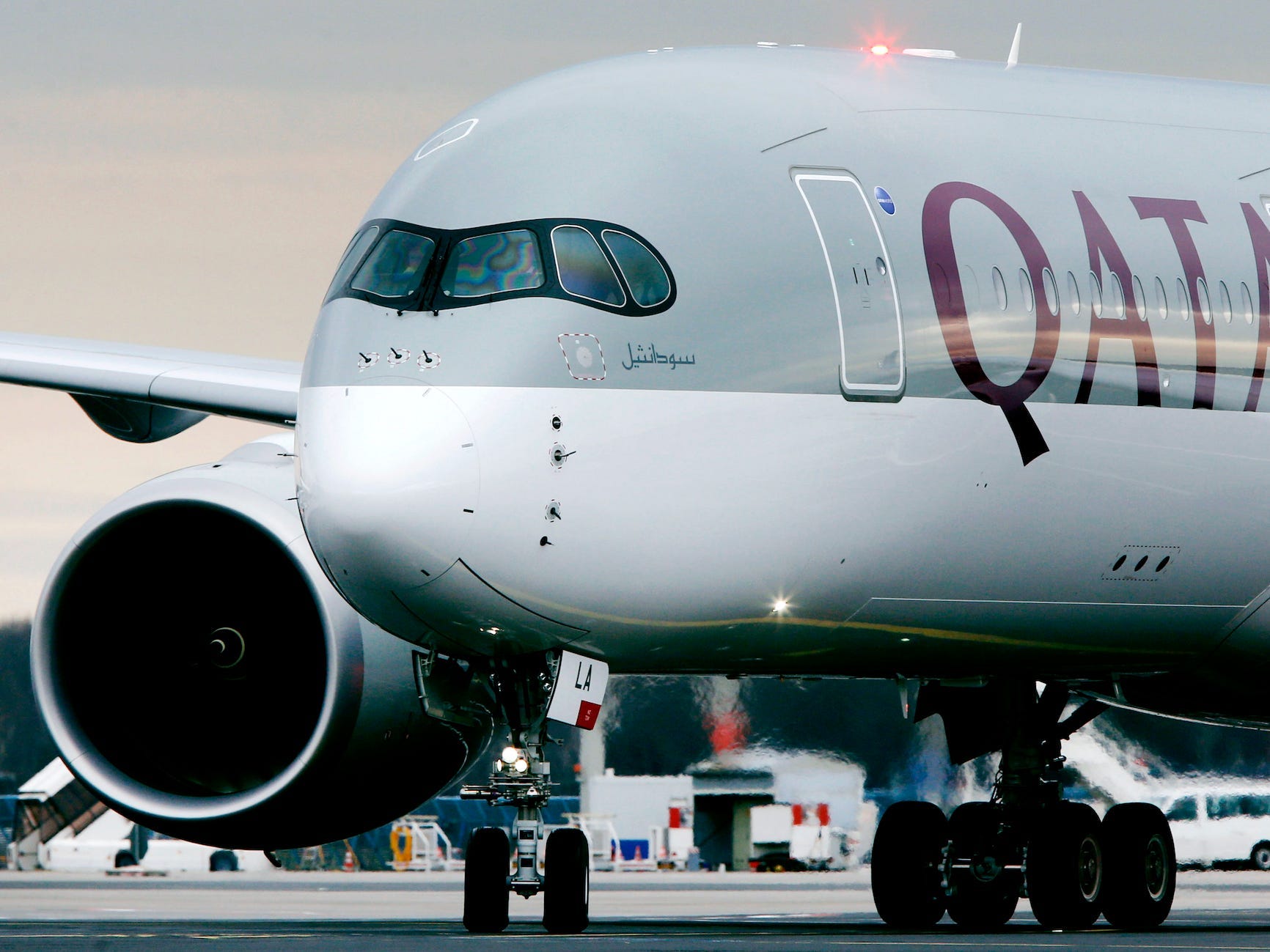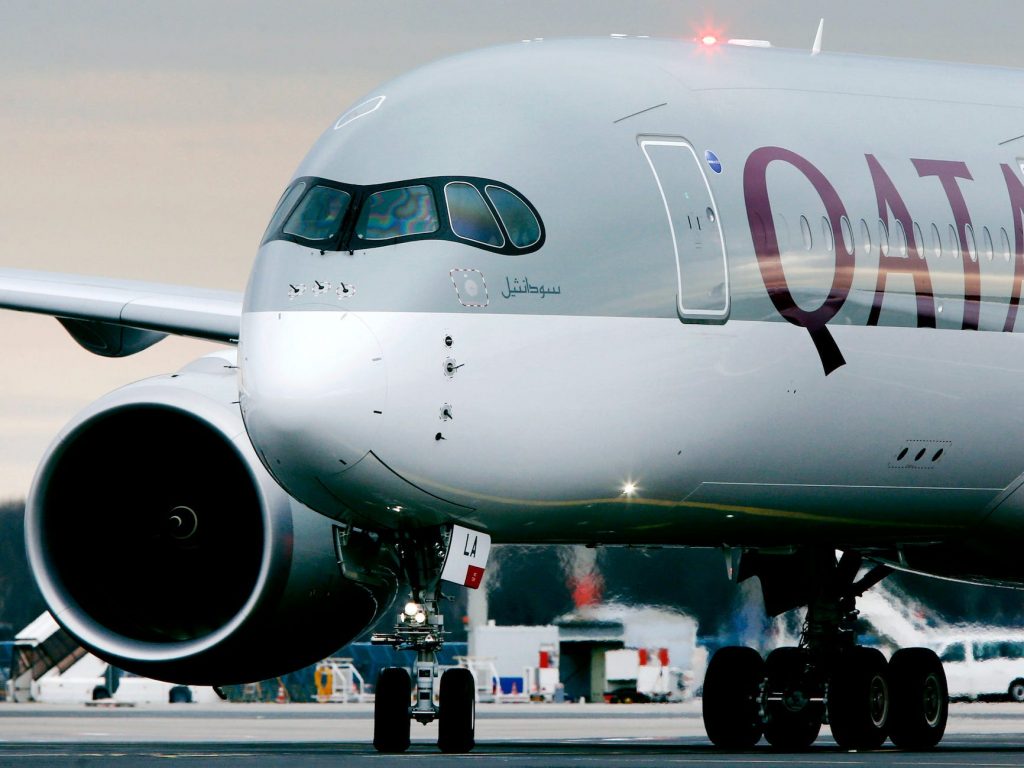
- Qatar Airways wants $618 million from Airbus over paint-related damages on the airline's A350 jets.
- Qatar has grounded 21 of its A350s, citing airworthiness issues due to cracked paint and exposed copper mesh.
- The two have been at a stalemate for months, with Airbus claiming the paint issues do not impact safety.
Paint issues on Airbus' A350 jets have raised concerns from airlines around the world, and Doha-based Qatar Airways is seeking over $600 million in damages from the manufacturer.
Qatar has grounded more than 20 Airbus A350 planes since August, citing airworthiness concerns about the surface paint the planemaker uses on the jet, according to Aviation International News. The airline said in a statement that it is following "explicit written instructions" from the Qatari aviation safety regulator.
After Airbus pushed back on Qatar's claims, the airline filed a lawsuit against the planemaker in a London High Court in December. Now, court documents reveal the carrier wants $618 million in compensation from the planemaker, Reuters reported on Thursday. The airline is also asking for an additional $4 million for every day the jet remains out of service.
Included in the court filing is $76 million for one of Qatar's A350s that was set to be re-painted in a special livery for the 2022 World Cup, which needs 980 repair patches, according to Reuters.
An Airbus spokesperson told Insider that it "acknowledges the receipt" of Qatar's claim, which they "deny in total." The company also said they have identified the root cause and "provided necessary guidance to its customers and operators for continuous operations."
During the months-long dispute, the manufacturer has repeatedly said the paint flaws do not impact the airworthiness of the A350 and re-emphasized that point in a statement to Insider. The findings were also confirmed by the European Aviation Safety Agency, according to Airbus.
Photos obtained by Reuters show what appears to be paint peeling and cracking, and exposed copper mesh on the fuselage of Qatar's A350. According to Reuters, the mesh layer is placed under the paint to protect the plane's fuselage from lightning damage, which strikes planes once a year, on average.
While Airbus says the problem is simply "cosmetic," Qatar CEO Akbar Al Baker says the paint flaw is a safety issue, claiming "the fuselage surface below the paint is degrading at an accelerated rate," reported AIN.
At least six other carriers have also complained of paint damage on A350s, including Finnair, Cathay Pacific, Etihad, Lufthansa, Delta Air Lines, and Air France, reported Reuters. However, most of these airlines say the issue does not pose a safety threat, with Qatar being the only carrier to ground the jets.
Airbus representatives didn't immediately respond to a request for comment.
In response to the multiple concerns over its A350s, Airbus said in a statement that "it has become necessary for Airbus to seek an independent legal assessment as a way forward to resolve the dispute."
However, the planemaker revealed its frustration over Qatar's claims in the same statement, saying "the attempt by this customer to misrepresent this specific topic as an airworthiness issue represents a threat to the international protocols on safety matters."
Qatar's complaints have put the airline and Airbus at a stalemate. In June, the carrier announced it would not be accepting any future deliveries of the A350 until Airbus conducts a full root-cause analysis, which Qatar claims the manufacturer has yet to do, according to Reuters.
Al Baker told the South China Morning Post in December that Airbus "destroyed" the business relationship with Qatar, which was the launch customer for the Airbus A350-1000. Because of the groundings, the airline temporarily reintroduced five A380 jets in November to cover capacity issues caused by the grounding of the A350, reported AIN.
